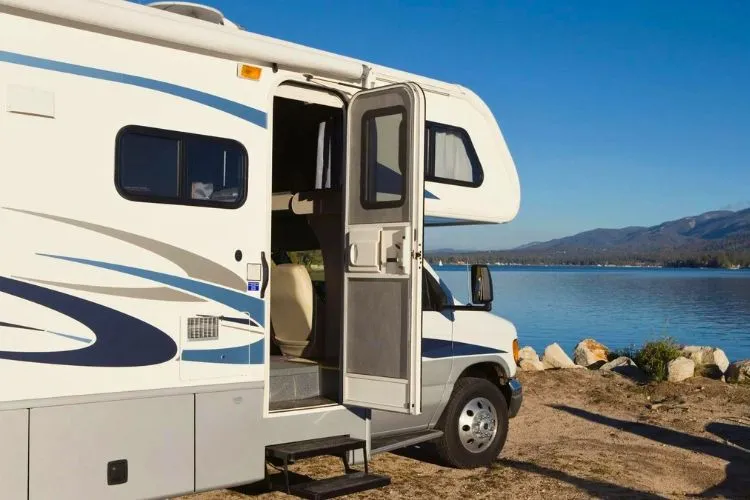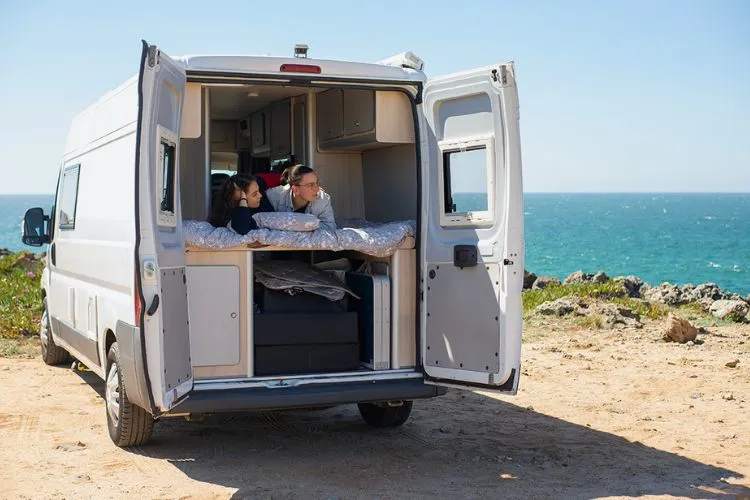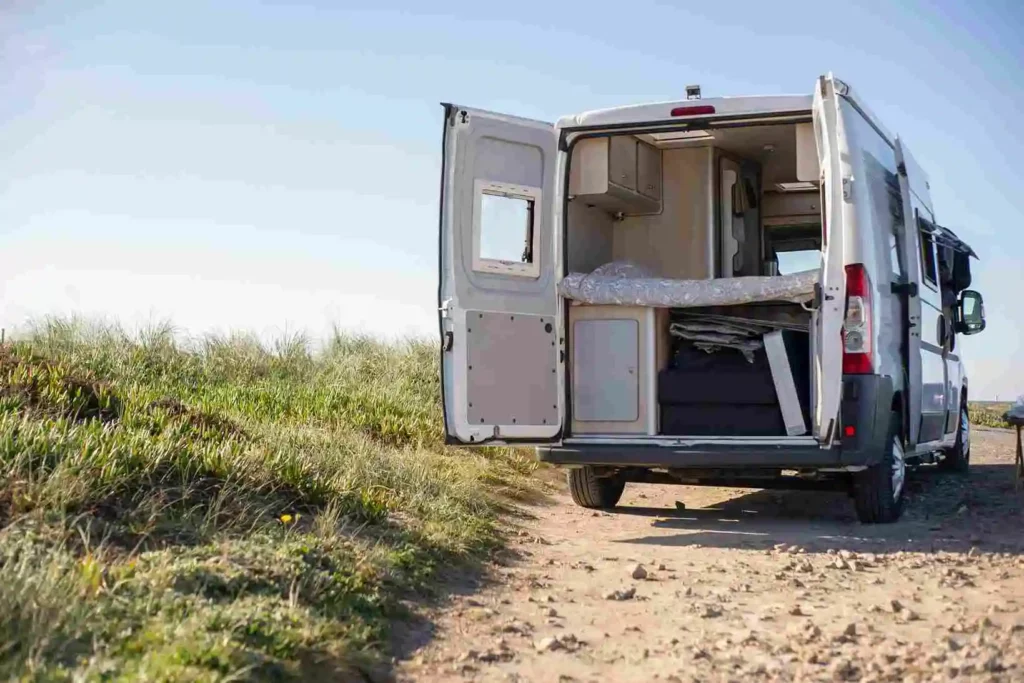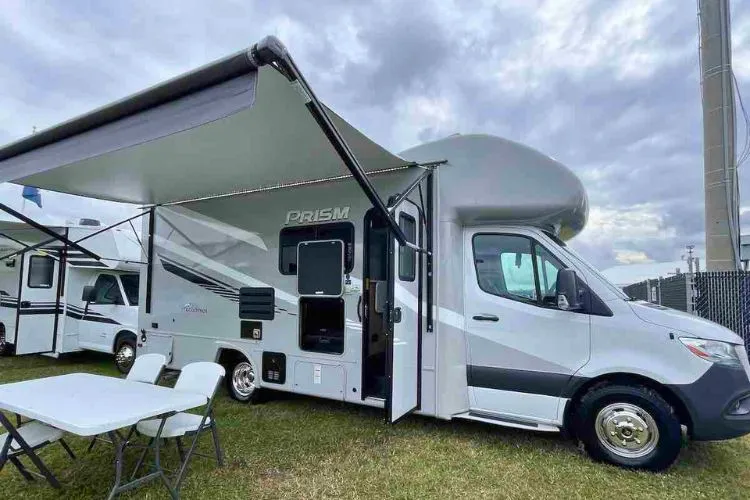The allure of the open road has captivated the hearts of travelers for generations. Yet, the evolution of the recreational vehicle (RV) has transformed this timeless passion into an art form.
Among the many types of RVs available today, the self-contained RV stands out as a beacon of autonomy and convenience. It promises an unparalleled sense of freedom, allowing adventurers to carry all the comforts of home wherever they roam.

What Is A Self-contained Rv?
A self-contained RV is a recreational vehicle designed to be entirely independent for extended periods, equipped with onboard systems to support daily living without the need for external resources.
It includes built-in water tanks for fresh, gray, and black water, allowing for the collection, storage, and disposal of water used for drinking, cooking, showering, and waste.
Self-contained RVs also feature onboard power sources, such as batteries, generators, and sometimes solar panels, to supply electricity for lighting, heating, cooling, and operating appliances. Additionally, these RVs come with fully equipped kitchens and bathrooms, living and sleeping areas, offering a comfortable and convenient living environment on the move.
Their design maximizes space utilization and includes storage solutions, making them ideal for long-term travel and off-grid camping, providing travelers with the flexibility and freedom to explore remote areas without compromising on comfort.
Key Features of a Self-contained RV

Water/Waste Systems
Integral to the self-contained RV is its sophisticated water and waste management system. These vehicles are equipped with fresh, gray, and black water tanks. Freshwater tanks supply clean water for drinking, cooking, and bathing.
The gray water tank collects water from sinks and showers, while the black water tank is reserved for the toilet. This tri-tiered system enables extensive travel without the constant need for external water sources or waste disposal facilities.
Power Source
Equally important is the RV’s onboard power source, often a combination of generator, batteries, and sometimes solar panels. This setup powers everything from the refrigerator and lighting to air conditioning and heating systems, ensuring comfort regardless of external conditions.
Kitchen and Bathroom Amenities
Contrary to what one might expect, the kitchens in self-contained RVs are remarkably well-appointed, often featuring a stove, oven, microwave, and refrigerator. Bathrooms, too, are surprisingly comfortable, equipped with showers, toilets, and sometimes even small tubs, underscoring the RV’s self-reliance.
Living and Sleeping Configurations
The interior design of self-contained RVs cleverly maximizes space. Convertible dinettes, fold-out sofas, and overhead bunks are common, ensuring that these vehicles can accommodate families and solo travelers alike with ease.
Storage Solutions
Given the premium on space, self-contained RVs boast innovative storage solutions. From under-seat compartments to overhead bins, every inch is utilized, ensuring travelers can bring along everything they need for their journey.
Benefits of Self-contained RVs

- Freedom and Flexibility: Undoubtedly, self-contained RVs are tickets to unparalleled freedom and flexibility. They allow travelers to explore off-the-beaten-path destinations without worrying about the availability of campgrounds with amenities.
- Remote Camping Capability: Thanks to their comprehensive facilities, these RVs excel in off-grid camping scenarios. You can park in remote wilderness areas for days or even weeks at a time, a concept known as ‘boondocking‘.
- Cost Savings: When compared to hotels or vacation rentals, a self-contained RV can offer significant savings, especially for long trips. The ability to cook your own meals and avoid nightly lodging fees quickly adds up.
- Convenience and Comfort: The convenience of having your possessions and amenities at your fingertips cannot be overstated. This mobile living solution blends the notions of ‘traveling’ and ‘home’, making it comfortable for extended periods on the road.
- Outdoor Experience: Finally, self-contained RVs provide an intimate connection with nature. They serve as a comfortable base camp for outdoor activities like hiking, biking, and kayaking, promoting an active and healthy lifestyle.
How Self-contained RVs Work?

Water System
The water system in a self-contained RV is a marvel of modern engineering. Water pumps ensure pressure remains consistent, while heaters guarantee hot showers are always an option, bringing residential-level convenience to the nomadic lifestyle.
Waste Management System
Dealing with waste effectively, the RV’s plumbing channels grey and black water into their respective tanks, where they are stored until they can be safely emptied at a designated dump station.
Power System
The heart of a self-contained RV’s autonomy lies in its power system. Inverter chargers convert DC battery power to AC, allowing standard electrical appliances to be used. For those seeking sustainable options, solar panels can reduce reliance on generators, making for a quieter and more eco-friendly experience.
Tips for Choosing a Self-contained RV
- Size and Layout Considerations: Size matters when choosing a self-contained RV. Consider the number of people traveling and the length of your trips. Compact designs are easier to navigate but offer less living space, while larger models provide more amenities but may be more challenging to maneuver.
- Water and Waste Capacities: Pay close attention to tank sizes. Larger tanks extend the duration of your off-grid adventures but come with the trade-off of additional weight.
- Power Sources and Electric Setups: Evaluate the RV’s electrical system, especially if you plan to camp off-grid frequently. Look for models with high-capacity batteries, efficient generators, and, if possible, solar panels.
- Kitchen and Bathroom Amenities: Don’t compromise on kitchen and bathroom facilities. These are pivotal to your comfort. Look for RVs with full-sized or creatively designed kitchens and bathrooms to enhance your living experience.
- Maintenance History: For used RVs, a thorough examination of the maintenance record is crucial. Look for signs of well-kept systems and no history of significant issues, particularly with the RV’s power, water, and waste systems.
Conclusion
Self-contained RVs symbolize the ultimate marriage of freedom and comfort in the realm of travel. They offer a unique opportunity to explore the world on your own terms, without sacrificing the conveniences of modern living.
Whether you’re a seasoned road warrior or a curious newcomer, the journey toward embracing the autonomy of a self-contained RV promises an adventure like no other. With the right preparation and a spirit of exploration, the open road beckons with endless possibilities.


